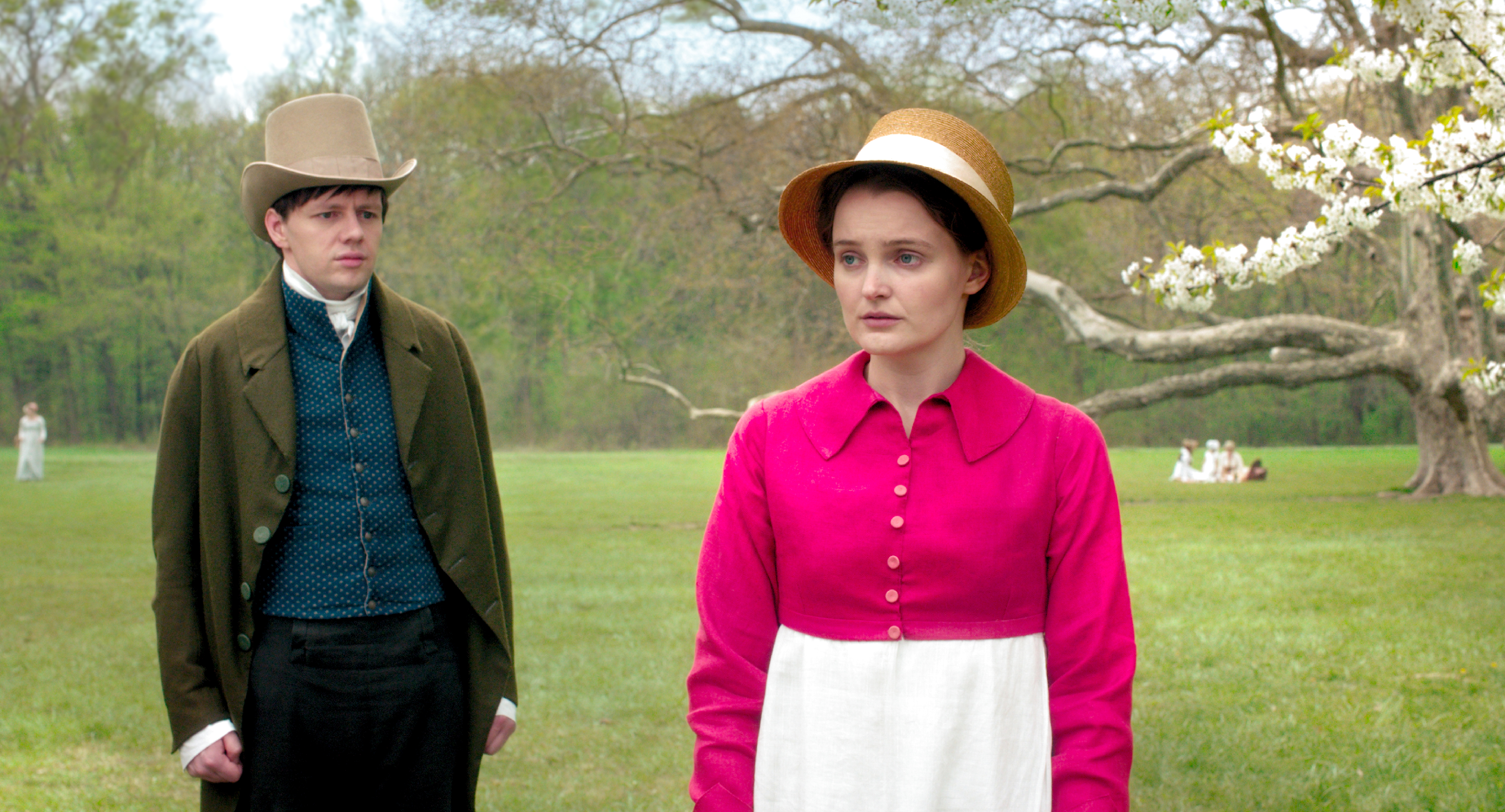In November 1811, in accordance with their suicide pact, the great German Romantic writer Heinrich von Kleist shot and killed Henriette Vogel on the shores of the Kleiner Wannsee outside Berlin. Then he shot himself in the head. There are undoubtedly many ways you could tell this story, and some of them would be of the lip-trembling, violins-keening variety. Amour Fou isn’t that. Instead, Austrian director Jessica Hausner has fashioned a formal, feminist, wickedly humorous variation on history.
The movie suggests that Henriette (the placid Birte Schnoeink) is a Napoleonic-era version of a 1950s American housewife. She’s produced a daughter for her husband (Stephan Grossman) and is content to be his property, as she puts it. But she has an empathetic reaction to the sad characters of Kleist’s story The Marquise of O, and when the author (Christian Friedel, from The White Ribbon) hears this, he focuses his sad-sack attention on the caged bird. The film treats Kleist as a foolishly doomy beatnik, pressing his case with Henriette based on a grandiose idea of what the ultimate gesture of love might be. She has her own reasons for going along with the plan.
Hausner previously directed Lourdes, a very odd and subversively funny 2009 film about a pilgrimage. Amour Fou is similarly irreverent toward its subject; it’s almost a parody of the Great Author subgenre. The look of the film is rigid and stilted; its costumes draped in rich colors, its wallpaper in vertigo-inducing patterns. (No wonder Henriette goes from singing at parties to fainting on the couch.) Hausner has cast the movie brilliantly: We know volumes about wife, husband, and poet just from their faces and the way they move. Ideal as they are, the actors certainly aren’t allowed to act much—although Sandra Huller, in just two or three scenes, is masterly at communicating her disbelief at Kleist’s ideas. She plays the woman initially invited to join him in the suicide pact, before his fixation on Henriette takes over. Hausner sympathizes with her perspective, although it’s odd that in telling the story from the woman’s viewpoint, the film actually makes Henriette more of a victim than the historical version suggests. (In real life, according to traditional accounts, Henriette instigated the suicide plan.)
No such grand passions for this movie. It snickers at such nonsense, and if you get into its mode, you probably will, too.
film@seattleweekly.com
AMOUR FOU Runs Fri., April 24–Thurs., April 30 at Grand Illusion. Not rated. 96 minutes.







